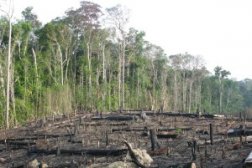Brazil Environmental Issues
Air pollution in Brazil has increased, mainly as a result of the rapid urbanisation and industrial development taking place in most of the city centres. As the population numbers boomed, cities were forced to expand with little regard for their environmental responsibility. This, in turn, meant that the infrastructure and so on was built using products and methods that release harmful pollution into the air. Many of the cities and towns are exploring alternatives to reduce their pollution production.
Waste Disposal
Like most major countries in the world, Brazil produces enormous amounts of solid waste, or garbage. This has to be taken away from occupied areas and destroyed or disposed of. However, such waste poisons the soil, air and water, creating the dilemma of what to do with it. Currently, Brazil produces more than 161 000 tons of solid waste every day. Almost two-thirds of Brazilian municipalities use landfills to dispose of such waste. As landfills become larger, natural areas have to be reduced and the soil in and around the landfills becomes toxic, or unable to sustain life. The solution includes the use of recycled and recyclable goods, as well as a major education campaign that assists with the responsible use and disposal of various items, both in the home and workplace.










